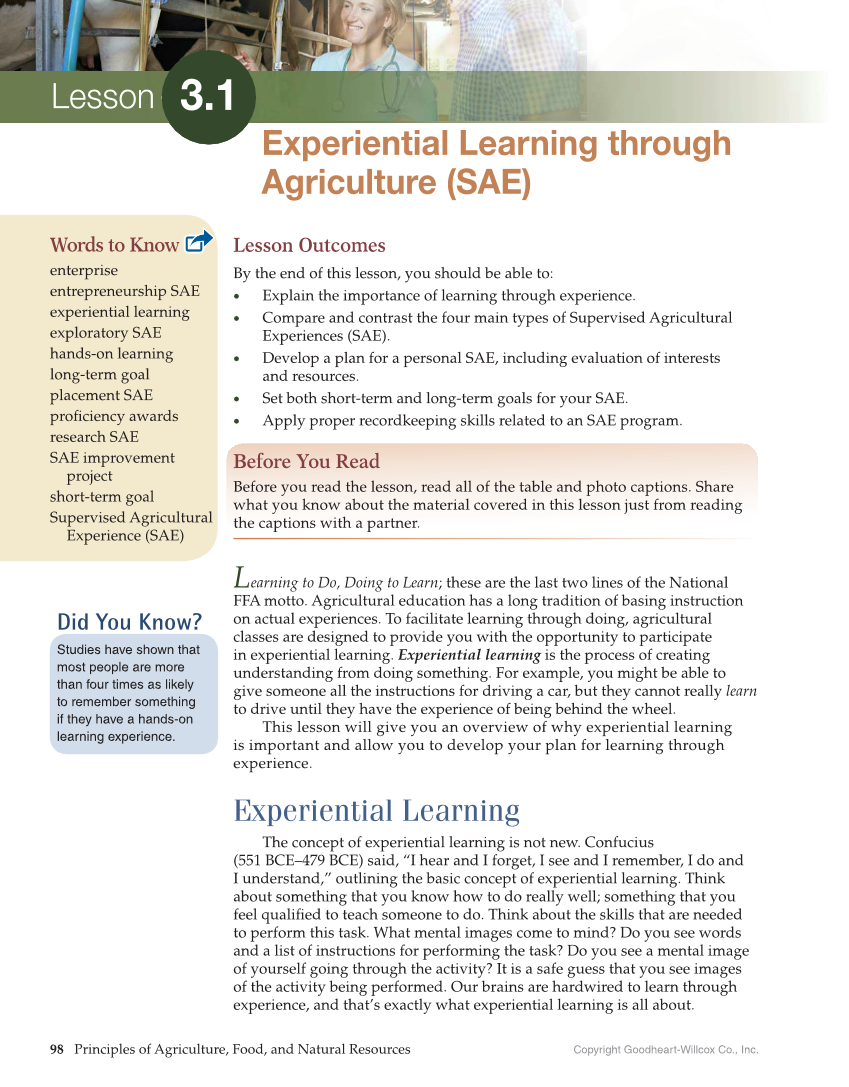98 Principles of Agriculture, Food, and Natural Resources Copyright Goodheart-Willcox Co., Inc. w w w w w w w w w w w w w w w Words to Know enterprise entrepreneurship SAE experiential learning exploratory SAE hands-on learning long-term goal placement SAE proficiency awards research SAE SAE improvement project short-term goal Supervised Agricultural Experience (SAE) Experiential Learning through Agriculture (SAE) 3.1 Lesson Outcomes By the end of this lesson, you should be able to: „ Explain the importance of learning through experience. „ Compare and contrast the four main types of Supervised Agricultural Experiences (SAE). „ Develop a plan for a personal SAE, including evaluation of interests and resources. „ Set both short-term and long-term goals for your SAE. „ Apply proper recordkeeping skills related to an SAE program. Before You Read Before you read the lesson, read all of the table and photo captions. Share what you know about the material covered in this lesson just from reading the captions with a partner. Learning to Do, Doing to Learn these are the last two lines of the National FFA motto. Agricultural education has a long tradition of basing instruction on actual experiences. To facilitate learning through doing, agricultural classes are designed to provide you with the opportunity to participate in experiential learning. Experiential learning is the process of creating understanding from doing something. For example, you might be able to give someone all the instructions for driving a car, but they cannot really learn to drive until they have the experience of being behind the wheel. This lesson will give you an overview of why experiential learning is important and allow you to develop your plan for learning through experience. Experiential Learning The concept of experiential learning is not new. Confucius (551 BCE–479 BCE) said, “I hear and I forget, I see and I remember, I do and I understand,” outlining the basic concept of experiential learning. Think about something that you know how to do really well something that you feel qualified to teach someone to do. Think about the skills that are needed to perform this task. What mental images come to mind? Do you see words and a list of instructions for performing the task? Do you see a mental image of yourself going through the activity? It is a safe guess that you see images of the activity being performed. Our brains are hardwired to learn through experience, and that’s exactly what experiential learning is all about. Lesson Did You Know? Studies have shown that most people are more than four times as likely to remember something if they have a hands-on learning experience.
